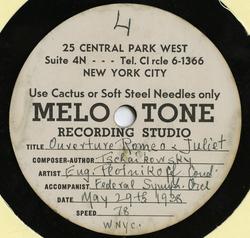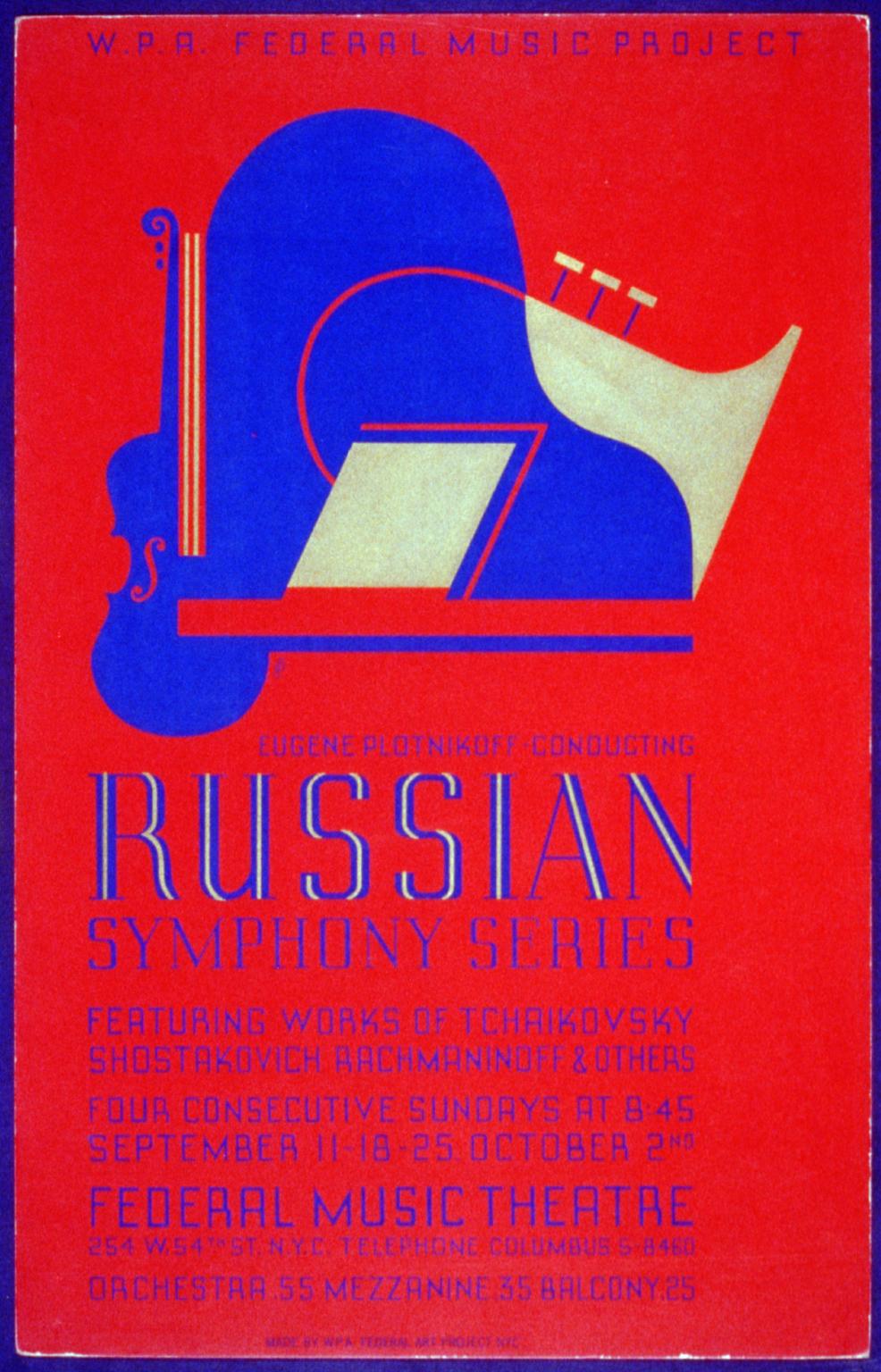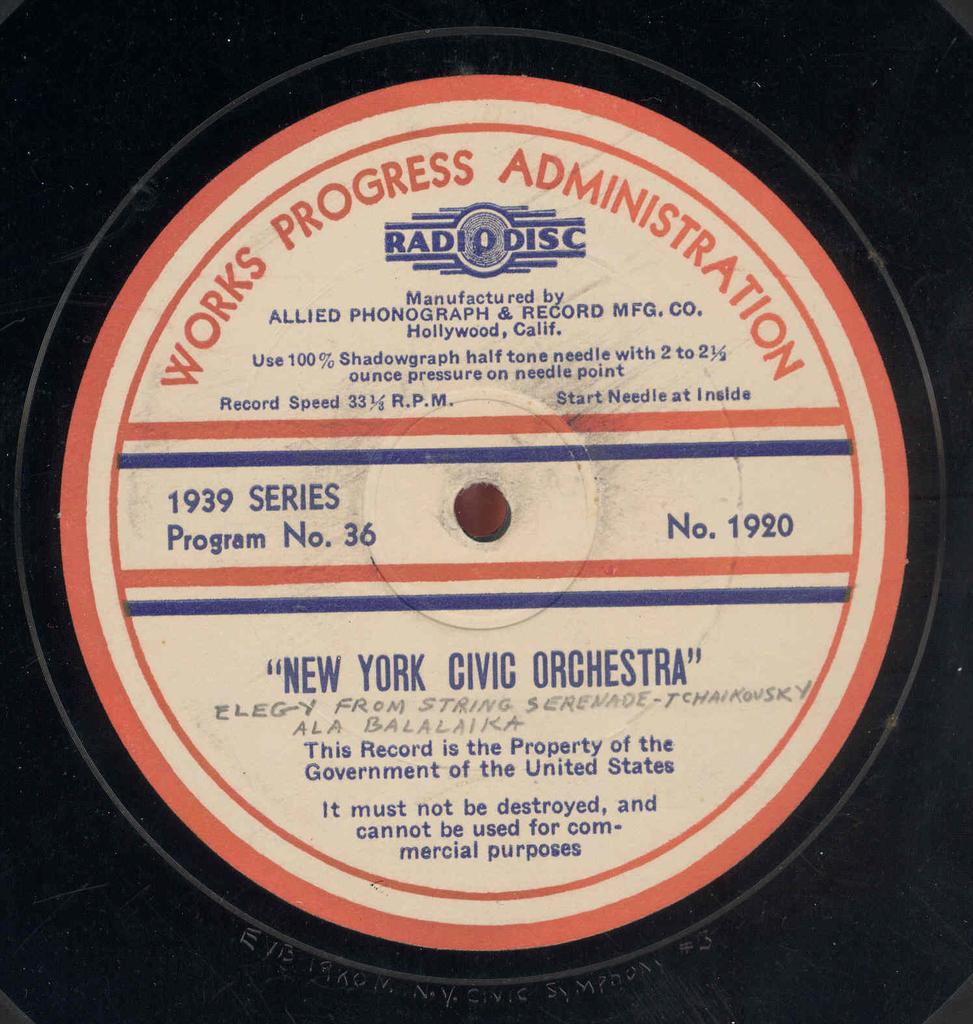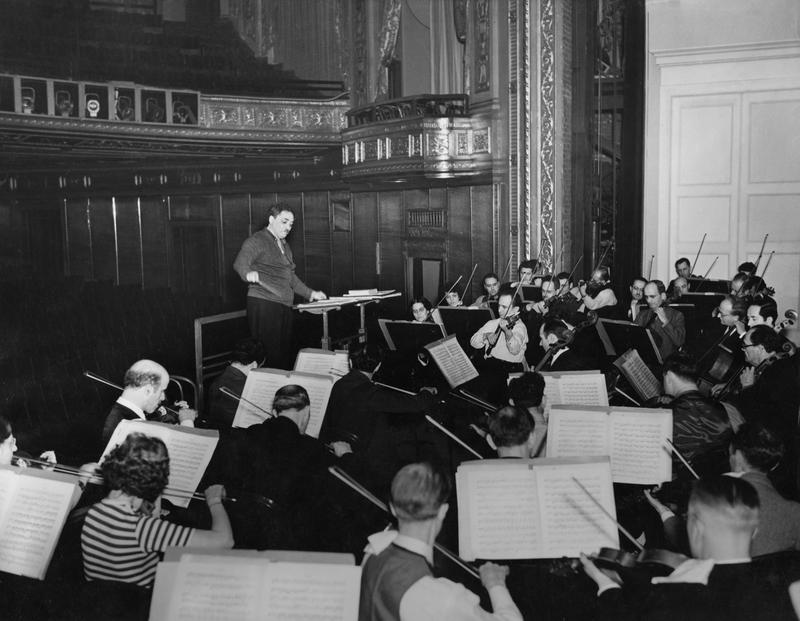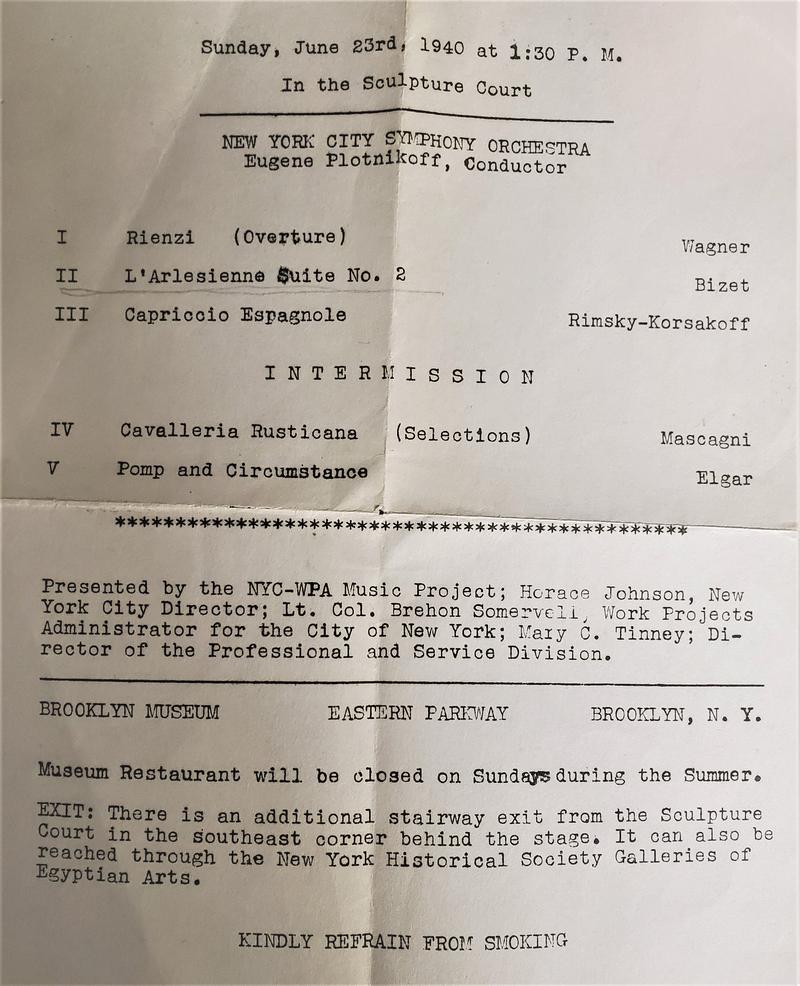 NYPR Archives & Preservation
NYPR Archives & Preservation
Maestro Eugene Plotnikoff Conducting
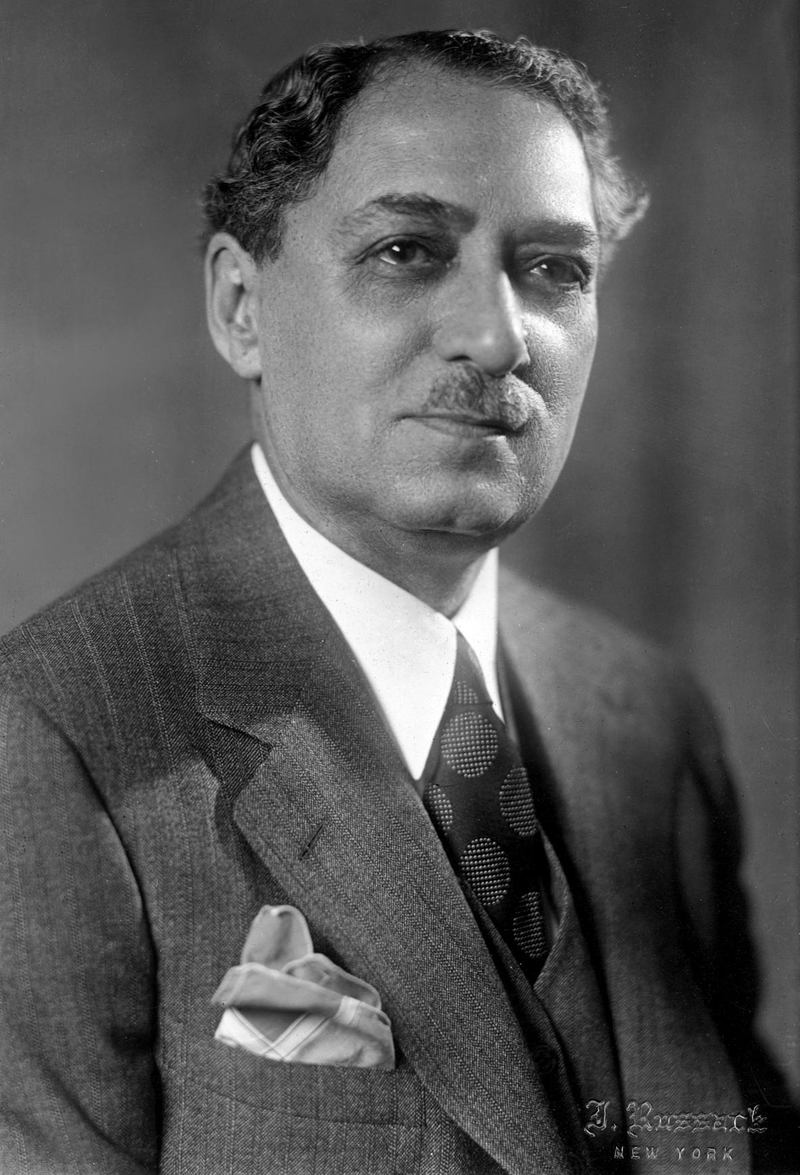
Eugene Plotnikoff conducted musical performances heard regularly over WNYC for more than half of the 1930s and into the forties, when he was with the WPA's Federal Music Project [1]. The recording above, pieced together from eight 12-inch 78rpm lacquer disc sides, comes from an all-Tchaikovsky concert by the Federal Symphony Orchestra on May 29, 1938. The concert featured material from the opera Mazeppa with the soloists Ruth Peters, soprano and Charles Heywood, tenor. It is just one of the hundreds of live concerts that WNYC broadcast during the WPA era.
Plotnikoff, a veteran of the Moscow Imperial Theater's orchestra pit, knew Tchaikovsky, whom he called "the kindest man I have ever known."[2] But the great Russian composer wasn't alone on Plotnikoff's celebrity list of friends and acquaintances, which included Serge Rachmaninoff, Nikolai Rimsky-Korsakov, Reinhold Glière, Alexander Glazounov, and Mill Balakireff.
Plotnikoff began as a cello student at the Imperial Music School in Odessa. Progress there led to the Moscow Conservatory, where he was a student of the composer Vasily Sergeyevich Kalinnikov and played in the orchestra under Tchaikovsky's baton. Out on his own, Plotnikoff took up the conducting reins at Moscow's Imperial Theater, where he directed the world premiere of Rimsky-Korsakov's opera Sadko. The Imperial is also where he was ballet director for five years when Rachmaninoff was the theater's general operatic director. [3]
Plotnikoff left the Soviet Union in 1921 to conduct a series of operatic performances in Paris and toured the United States as a conductor for the Chaliapin Opera Company before joining the WPA Federal Music Project soon after its inception.
The Daily Worker described Plotnikoff as the "conductorial mainstay" of the New York City Federal Music Project. He began his tenure leading the Festival Orchestra (later known as the Federal Symphony) and then the 100-member New York Civic Orchestra. The New York City Symphony Orchestra followed that, and in April 1941 he took over the directorship of the WPA Manhattan Chorus. It was the WNYC broadcast of Plotnikoff's Brooklyn Museum concert performance that was famously interrupted by the first domestic news bulletin announcing the Japanese attack on Pearl Harbor. He also conducted the WNYC Concert Orchestra at least a dozen times for American Music Festival and Brooklyn Museum concerts.
In spite of the hard times during the Depression, Plotnikoff was impressed by the wealth of talent and energy among the city's unemployed musicians.
I can't help but think that merit alone or lack of it, was not the factor that put these men and women out of work. It must have been unfortunate circumstances, for assuredly the musicians that come to me are qualified to play in any orchestra anywhere. Honestly, I think that if I had the financial backing to form a symphony orchestra, I would audition my artists from the ranks of the unemployed. I am sure I could get as good an orchestra there as elsewhere. [4]
In a February 1940 interview with Etude Music Magazine, Plotnikoff said it was impossible to give enough praise to the WPA Federal Music Project.
Organized some time ago, in the hope of bringing dignified assistance to unemployed musicians, they have rapidly become a splendid means of furthering music education. My orchestra numbers one hundred expert performers, many of whom have been 'spotted' and engaged for ranking symphonic organizations. Our programs are chosen for their purely musical value, without regard to box office popularity.[5]
Plotnikoff went on to emphasize that his experience had shown that catering to what is 'popular' was not a factor for winning a loyal and sizeable audience. He added that the concerts, which were at first free and later charged a nominal fee (35 to 55 cents), were regularly sold out.
This is a true test of the public interest in good music. It is satisfying to report that these concerts, which are attended solely for their musical worth, and not for any reasons of fashion or glamour, are reaching the very people who need them most. Perhaps only in America would a project of this kind be possible today. [6]
Although New York-based, Plotnikoff's conducting prowess could be heard throughout the United States via the WPA Federal Music Project's distribution system. This pre-satellite 'syndication' relied on the U.S. Post Office delivering thousands of 16-inch broadcast transcription discs like this one (left) to participating radio stations around the country. The music follows below.
Eugene Plotnikoff died tragically of a heart attack on September 29, 1951, while conducting The New York City Amateur Symphony Orchestra at their City Center rehearsal of Tchaikovsky's Fifth Symphony. He was 73.[7]
__________________________________________
[1] For more details please see: The WPA Federal Music Project is a Major Presence at WNYC.
[2] Heylbut, Rose, "Medallions of Russian Masters of Yesteryear by Eugene Plotnikoff," The Etude Music Magazine, February 1940, pg. 137.
[3] "Russian Program at Museum," The Brooklyn Eagle, June 4, 1939, pg. 6.
[4] "Let There Be Music ---Despite Pink Slips," Daily Worker, October 31, 1939, pg. 7.
[5] Heylbut, Ibid.
[6] Ibid.
[7] "E Plotnikoff Dies Leading Symphony," The New York Times, September 29, 1951, pg. 14.
